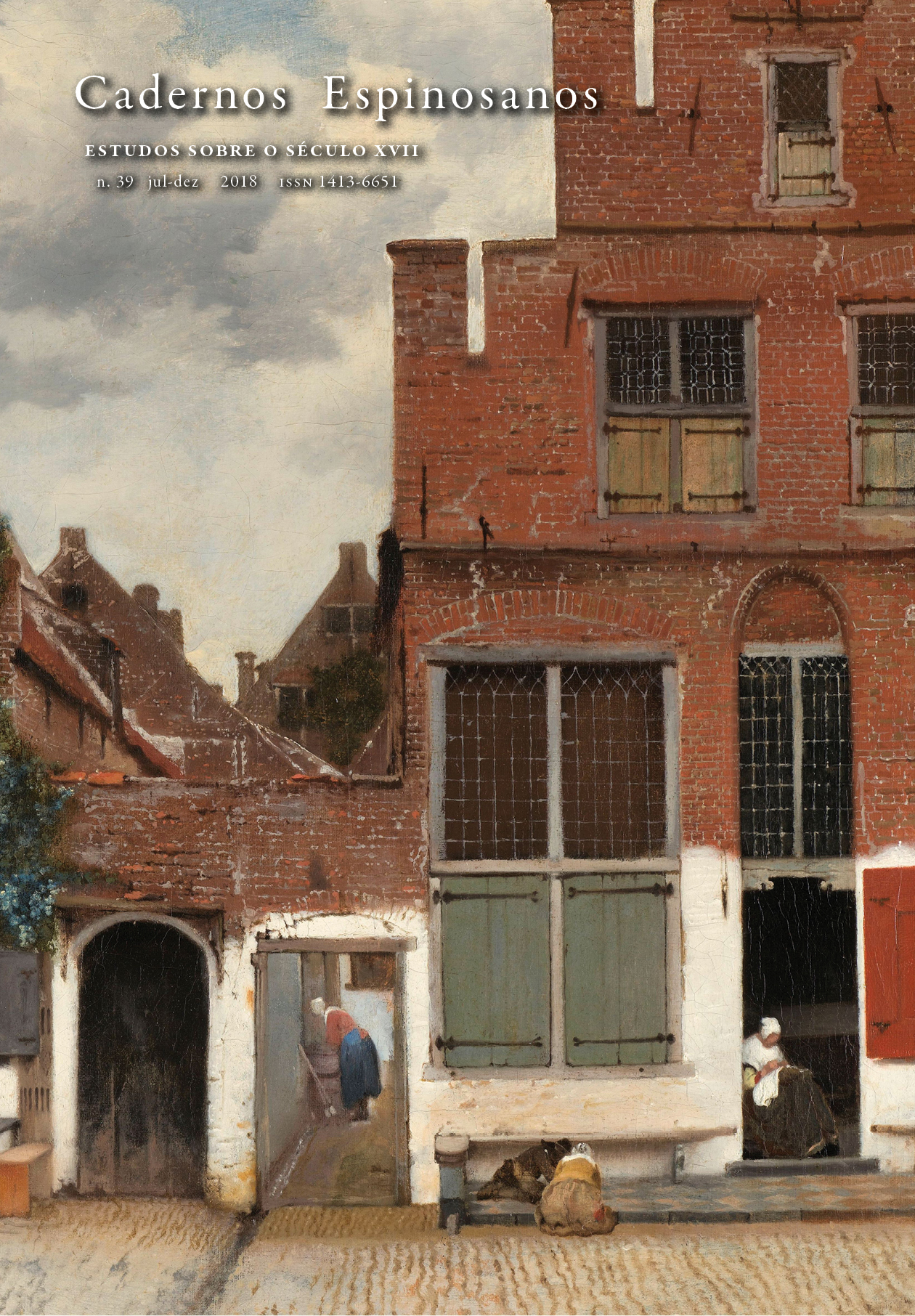VICO AND SPINOZA: ON THE VICISSITUDE OF LANGUAGES
DOI:
https://doi.org/10.11606/issn.2447-9012.espinosa.2018.151538Keywords:
Philology, History, Philosophy, Language, Imagination, VulgusAbstract
Notwithstanding Giambattista Vico's criticisms of Espinosa's thought, it is possible to establish a close relationship between both of them. If criticism distances the philosophers from each other, historical-philological interest approaches them. In fact, for the establishment of a certain convergence between the philosophical purposes of the two authors, the following presuppositions are made: i) on Vico’s New Science, as on Spinoza’s Theological-Political Treatise, philology is not only textual knowledge of languages, but access to the history of a people, for it keeps the temporal changes of civil life and the memory of the world of sense in which it is born; ii) language is not a creation of the rigor of the understanding, that is, it is not the creation of the philosophers, but of the imagination, therefore, of the vulgate. Thus, all access to the knowledge of the past inevitably passes through the power of fantasy-imagination: a question adressed by Espinosa in the ‘history of the Hebrews’ and by Vico in ‘the common nature of the nations’.
Downloads
Downloads
Published
Issue
Section
License
Autores que publicam nesta revista concordam com os seguintes termos:
- Autores mantém os direitos autorais e concedem à revista o direito de primeira publicação, com o trabalho simultaneamente licenciado sob a Licença Creative Commons Attribution que permite o compartilhamento do trabalho com reconhecimento da autoria e publicação inicial nesta revista.
- Autores têm autorização para assumir contratos adicionais separadamente, para distribuição não-exclusiva da versão do trabalho publicada nesta revista (ex.: publicar em repositório institucional ou como capítulo de livro), com reconhecimento de autoria e publicação inicial nesta revista.
Authors who publish in this journal agree to the following terms:
b. Authors are authorized to take on additional contracts separately, to non-exclusive distribution of the article published in this journal (ex.: to publish in institutional repository or as part of a book), with an acknowledgment of its initial publication in this journal.


